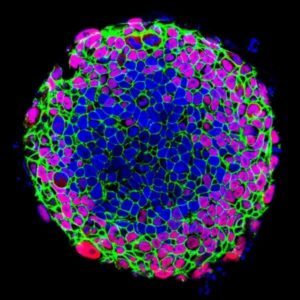 At Sunridge Medical we stand at the forefront of alternative treatments for patients with multiple sclerosis and other neurologic conditions using the experience and expertise of our medical team. We specialize in comprehensive testing, and individualized treatment programs prepared for each of our patients to address and care for multiple sclerosis. There is no single known cause of MS, yet there are a number of contributing factors can lead to the onset and progression of the disease including genetics, vitamin D status, infections including Lyme disease, and heavy metal exposure and retention.
At Sunridge Medical we stand at the forefront of alternative treatments for patients with multiple sclerosis and other neurologic conditions using the experience and expertise of our medical team. We specialize in comprehensive testing, and individualized treatment programs prepared for each of our patients to address and care for multiple sclerosis. There is no single known cause of MS, yet there are a number of contributing factors can lead to the onset and progression of the disease including genetics, vitamin D status, infections including Lyme disease, and heavy metal exposure and retention.
Revolutionizing Treatment of Multiple Sclerosis
- Genetics always play a role in health and disease and all autoimmune illnesses have a genetic component, yet 85% of multiple sclerosis patients do not have an affected relative and only 30% of identical twins develop multiple sclerosis if the other twin already has it.
- Clinical studies have pointed out that vitamin D deficiency may influence the development and progression of MS.
- Evidence shows there is an infectious component, etiology or contribution in the majority of MS cases. Infections that have a possible role in the pathogenesis of MS and perhaps other neurodegenerative diseases include HHV6, EBV, Lyme disease and mycoplasma.
- Mercury exposure has been linked with an increased risk of developing multiple sclerosis, possibly due to mercury’s ability to destroy the protective myelin sheath leading to neuron death.
Multiple sclerosis (MS) typically affects women between the ages of 20 and 40 years old and is an autoimmune disease of the nervous system that, through inflammation, affects your brain and spinal cord. It damages the myelin sheath, the material that surrounds and protects your nerve cells. This damage slows down or blocks messages between your brain and your body, leading to the symptoms of MS. The first symptoms of MS are typically visual changes yet can include:
Symptoms of Multiple Sclerosis
- Visual disturbances
- Decrease or loss of balance and fine motor coordination
- Muscle weakness
- Thinking and memory problems
- Sensations such as numbness, prickling, or “pins and needles” of the arms and legs
- Constipation and urinary retention
- Constant and Chronic Fatigue worse after a hot shower or exercise
Research on Multiple Sclerosis
Gilden DH. Infectious causes of multiple sclerosis. Lancet Neurol. 2005 Mar;4(3):195-202. doi: 10.1016/S1474-4422(05)01017-3. Erratum in: Lancet Neurol. 2005 May;4(5):269. PMID: 15721830; PMCID: PMC7129502.
Multiple sclerosis (MS) is a serious chronic neurological disorder in which demyelination and inflammation occur in the white matter of the CNS. The findings of many epidemiological studies and a discordance of MS in monozygotic twins suggest that the disorder is acquired. The most likely cause is a virus because more than 90% of patients with MS have high concentrations of IgG, manifest as oligoclonal bands, in the brain and CSF.


